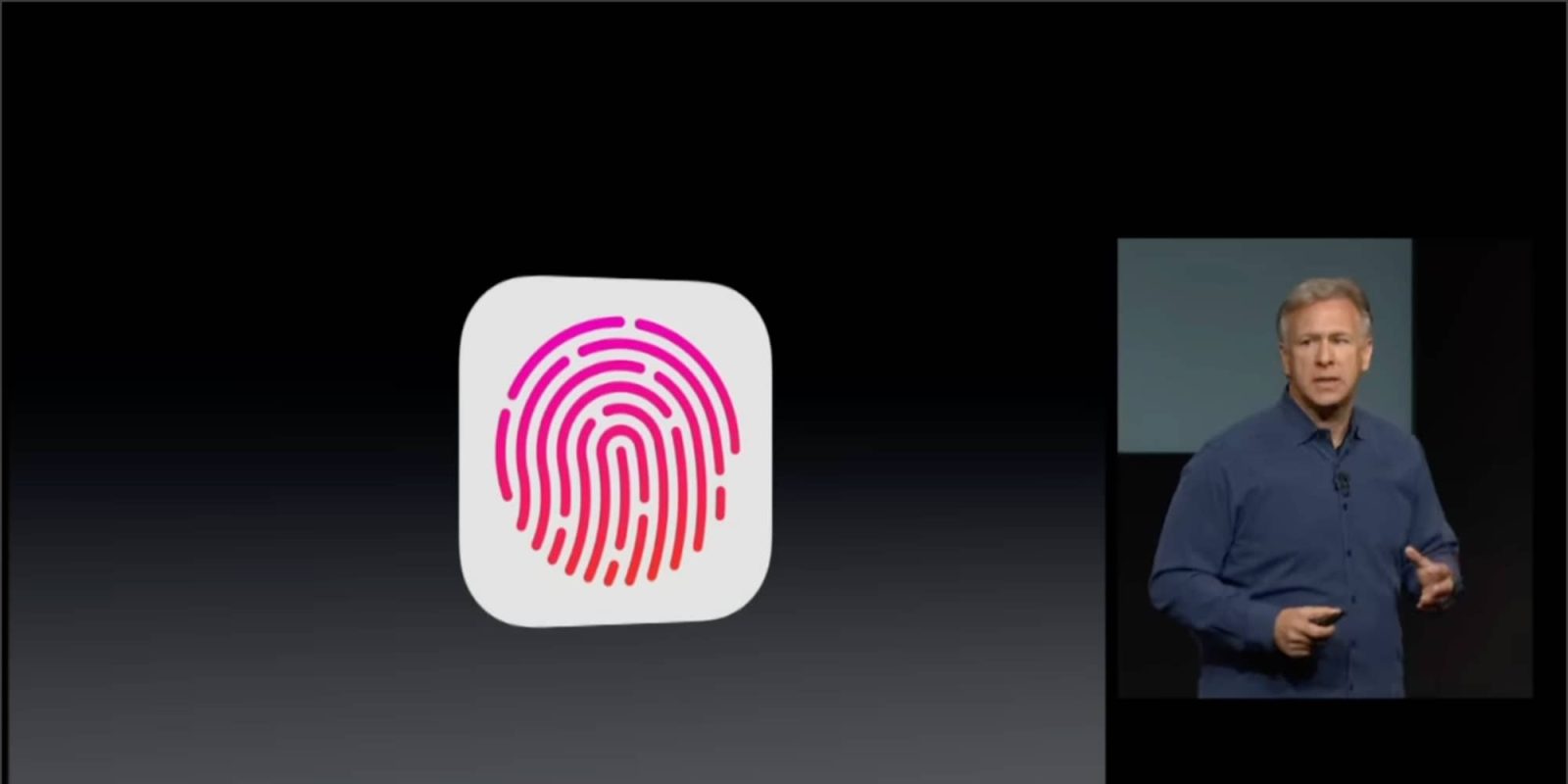
Apple @ Work is brought to you by Mosyle, the only Apple Unified Platform. Mosyle is the only solution that fully integrates 5 different applications on a single Apple-only platform, allowing Businesses to easily and automatically deploy, manage & protect all their Apple devices. Over 38,000 organizations leverage Mosyle solutions to automate the deployment, management, and security of millions of Apple devices daily. Request a FREE account today and discover how you can put your Apple fleet on auto-pilot at a price point that is hard to believe.
When Apple unveiled Touch ID on the iPhone 5s nearly ten years ago, it wasn’t the first time devices had included biometric unlock options. Many business PC has included it prior, but this was the first time it came to a device meant for the masses. At the time, we were in the midst of moving to a world where the cloud became the center of our. computing world, so a lot of people questioned why Apple made such a big deal about Touch ID staying on device in a secure method rather than “syncing” to other devices. Apple had previously purchased a company known as AuthenTec in 2012 that became the foundation of Touch ID. Today, I want to consider how Apple’s early decisions with Touch ID led to a world where passwords are on the way out… for good.
About Apple @ Work: Bradley Chambers managed an enterprise IT network from 2009 to 2021. Through his experience deploying and managing firewalls, switches, a mobile device management system, enterprise grade Wi-Fi, 100s of Macs, and 100s of iPads, Bradley will highlight ways in which Apple IT managers deploy Apple devices, build networks to support them, train users, stories from the trenches of IT management, and ways Apple could improve its products for IT departments.
When Apple unveiled Touch ID, they said it was aimed at eliminating the situation where customers didn’t set up a password. When during the announcement video, this was the explanation of Touch ID security:
All fingerprint information is encrypted and stored inside the Secure Enclave in our new A7 chip. It’s accessible only by the Touch ID sensor. It’s never available to other software, it’s not stored on Apple’s servers, or backed up to iCloud.
With ten years of history behind us, Apple’s focus on protecting biometric data even from itself was a critical piece of convincing users to trust the technology. When there is a network component to anything, there’s a subset of people that won’t trust it. Can it be inconvenient in 2023 to have to set up Touch ID/Face ID on your device every time you buy one? Yes, but it’s about establishing trust. It would have been easier and a more seamless experience to say: “It’s encrypted and backed up to iCloud”, but then there is situation where you must trust Apple. Today, you only have to trust the security on the device.
How Touch ID led to Passkeys
In the past decade, Apple’s biometric technology has come across the product lineup. Laptops have Touch ID, iPhones have Face ID, and iPads offer Touch ID as well. It’s the fastest way to unlock your devices, and it’s almost the most secure way. Today, we’re in the process of moving completely away from passwords to a technology called Passkeys.
Unlike passwords, which can be easily compromised, Passkeys offer a higher level of protection by leveraging cryptographic technology and the biometric unlock on your devices. Comprising a unique key pair, Passkeys establish a robust and private connection between your devices and the website or app you’re logging into. The public key is registered with the platform, while the private key remains securely stored on your devices. They are exclusively tied to the specific website or app they were created for, safeguarding you against fraudulent attempts to log in to your account. Passkey technology is built on top of the work the FIDO Alliance has done. Apple, Amazon, 1Password, Microsoft, Google, Dashlane, American Express, Meta, and many others are members of the FIDO Alliance. With a list of companies like that, other than the FIDO Alliance technology, there’s not much else they will agree on.
There’s a lot I could say about Passkeys as a technology, but I fundamentally believe that it will create a world where account hacks are almost eliminated. Easy to guess passwords are replaced with cryptographic technology.
Local device biometrics are an excellent way to assure both security and convenience and play an important role in both the present and future state of passwordless authentication.
Apple helped pave the way for broader acceptance of a passwordless user experience with Touch ID, bringing us to today — as an industry, we are working towards an even broader acceptance of technologies like passkeys, which will ultimately replace the need for passwords entirely.
As fellow board members of the FIDO Alliance, Dashlane is committed to continuing to build the tools and infrastructure for the widespread adoption of passwordless authentication technologies, reducing our reliance on vulnerable credentials once and for all.
John Bennett, CEO – Dashlane
Wrap up
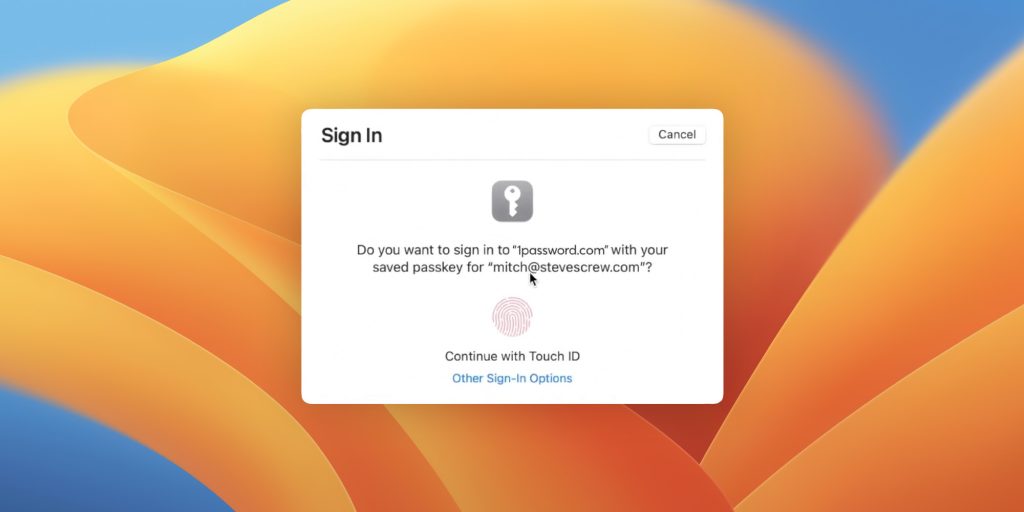
I said all I said for this reason, Touch ID was the first time a mass market device included biometrics, and it became the most widely used biometric technology overnight when the iPhone 5s hit the market. Apple established trust with its users. Other companies followed suit with similar technology and copied Apple’s lead on leaving the biometrics on device. In 2023, much of the world has a distrust for “big tech,” and that’s ok. With Passkeys, you get the benefits of a secure login system without worrying that your biometric data is sitting inside your iCloud, Google, or Microsoft account. It’s stored securely on the device where it belongs. Thanks to Touch ID, enterprise security teams get the benefits of technology like Passkeys without having to worry about employee biometric data.
Apple @ Work is brought to you by Mosyle, the only Apple Unified Platform. Mosyle is the only solution that fully integrates 5 different applications on a single Apple-only platform, allowing Businesses to easily and automatically deploy, manage & protect all their Apple devices. Over 38,000 organizations leverage Mosyle solutions to automate the deployment, management, and security of millions of Apple devices daily. Request a FREE account today and discover how you can put your Apple fleet on auto-pilot at a price point that is hard to believe.
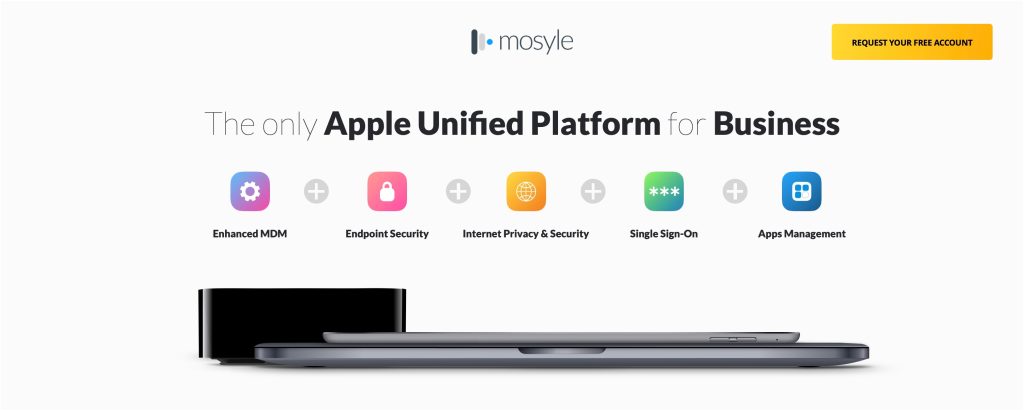
FTC: We use income earning auto affiliate links. More.
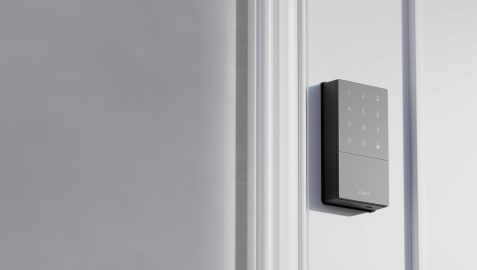
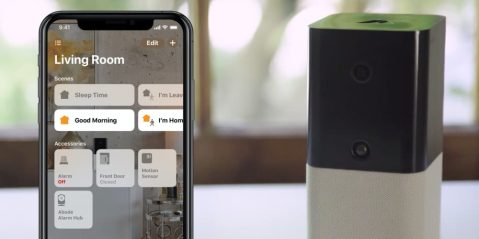





Comments